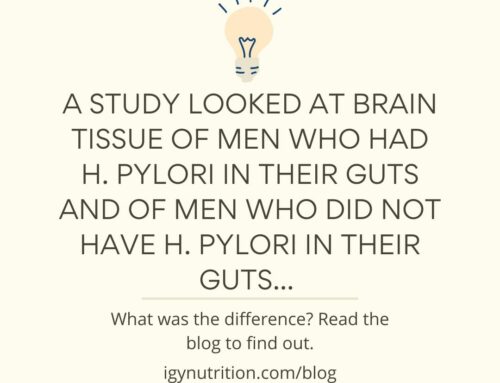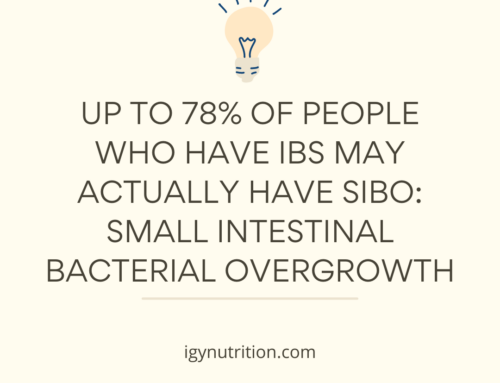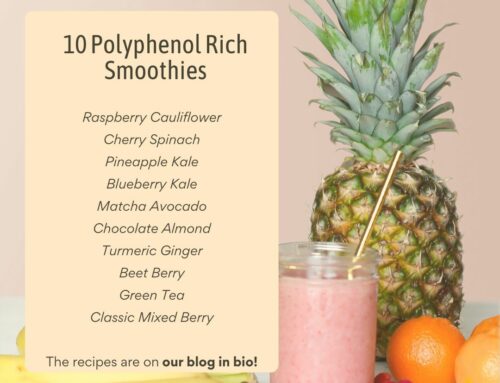Did you indulge more than usual this holiday season? You’re not alone! Making it through the pandemic might have tempted you into over-celebrating just a bit (us too).
Overindulging affects more than just our waistlines – if you’re like us, you might’ve been feeling a bit hungover. That’s a sign your liver and gut are crying out for help!
Let’s take a look at liver health and what you can do to support it.
What does your liver do?
The liver plays a crucial role in hundreds of bodily functions. It serves as a filtration system, ridding the body of toxins, converting nutrients into useful compounds, regulating hormone levels in the blood, and more.
Working in tandem with the digestive system, the liver metabolizes nutrients from food into substances that your body can use. This interaction between the gut and the liver has been coined the “gut-liver axis.”1,2
Is your liver on the nice list?
Well, that depends. Believe it or not, the naughty list is pretty long here in America.
There are more than 100 million adults in the U.S. who have fatty liver disease. Yep… 100 out of 330 million people have it. Yikes!
Fatty liver disease is a lot like it sounds: it’s characterized by a build-up of fat in the liver. This build-up can decrease your liver’s effectiveness.
Excessive alcohol consumption can cause it – a condition called alcoholic steatohepatitis. If caused by lifestyle factors like poor diet and lack of exercise, it’s called nonalcoholic fatty liver disease (NAFLD).
Under the influence of alcohol
When alcohol is consumed, the liver breaks it down into compounds it can filter out of the body more easily – one of which is acetaldehyde. This known carcinogen may damage the body.
When too much alcohol is consumed, toxic substances like acetaldehyde multiply and wreak havoc on your liver and the rest of the body, causing the all-too-infamous hangover.
In previous blogs, we’ve discussed the importance of gut barrier integrity – aka, the strength of your gut lining. Poor gut barrier integrity allows harmful substances to exit the gut and enter the bloodstream, causing systemic inflammation and higher risks of mental, hormonal, and metabolic conditions.
Guess who has to filter those harmful substances out of your blood? You got it – the good old liver.
So not only does alcohol stress the liver on its own – it also weakens the gut barrier, creating even more chores for the liver upon consumption.
Unfortunately, that’s not the whole story either.
Regular alcohol consumption also negatively impacts the gut microbiome’s composition. Levels of beneficial species such as Lactobacillus and Bifidobacteria have been shown to be reduced in alcoholics. That’s a bad sign for gut health.
Between initiation of acetaldehyde production, weakening of the gut barrier, and disadvantageous microbiome recomposition, the evidence pretty clearly indicates that alcohol damages gut health.
Do I have to give up alcohol for gut health?
Staying away from alcohol is one way to avoid the damage it causes to the digestive system. But complete restriction of liquor isn’t realistic for most – and that’s okay! Your gut health isn’t doomed.
Significant issues tend to occur when alcohol is binge-consumed or consumed frequently. A glass of wine here and there shouldn’t do too much damage.
However, if you’re consciously working to overcome dysbiosis or a hormonal imbalance, staying away from alcohol for a while is probably best.
The facts aren’t always “straight-up.”
Even if you don’t drink alcohol, your liver is not necessarily in the clear.
Being overweight or obese, having type 2 diabetes, high cholesterol, or high blood pressure may increase your risk of developing NAFLD.
A diet high in fat and sugar and low in vegetables, fruits, whole grains, and lean protein can also increase the risk of developing liver issues, especially when combined with excessive drinking.
Many risk factors for liver issues can be mitigated through a balanced diet and getting sufficient exercise. However, sometimes we could use a little assistance, right?
That’s where supplements come in.
Let’s be clear – supplements aren’t miracle pills. They can’t undo a poor lifestyle. But they might just give you the extra boost you need.
Probiotics are showing promise as an adjunct therapy for those with NAFLD. Supplementation with strains such as Lactobacillus and Bifidobacterium, for example, have been shown to regulate levels of liver enzymes, which break down toxins.
Other supplements have been shown to support liver health, including milk thistle, turmeric/curcumin, N-acetyl cysteine, and lipoic acid.9-12 Make sure to ask your doctor if supplements are appropriate for you before consuming them.
Live liver conscious
In sum, lifestyle practices like poor diet, lack of exercise, and excessive alcohol consumption negatively impact liver and gut health.
Eating a high-quality diet, drinking in moderation (if at all), exercising regularly, and consuming probiotics and prebiotics (aka synbiotics) will benefit your liver and gut – as well as other bodily systems.
While you can’t eliminate your exposure to all risk factors for fatty liver disease – no one lives in a vacuum – you can take steps to support your liver along the way.
Through this holiday season, try incorporating prebiotics into your routine and drink plenty of water – and go ahead, have a drink in celebration of making it through such a challenging year!
Tag us in photos of your gut health journey on Instagram @igynutrition!




